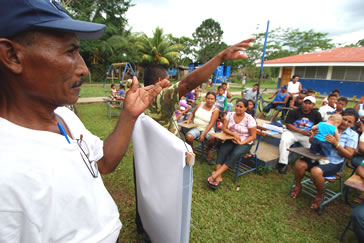Health promotion is defined as a process of enabling people to increase control over their health and its determinants. The primary means of health promotion occur through developing healthy public policy that addresses the prerequisites of health such as income, housing, food security, employment, education, and quality working conditions. More recent work has used the term Health in All Policies to refer to the actions to incorporate health into all public policies.
This idea is put into practice using participatory approaches; individuals, organizations, communities, and institutions working together to create conditions that assure health and well-being for all. In its simplest terms, health promotion fosters changes in the environment that help promote and protect health. These include changes in communities and systems-for instance, programs that assure access to health services or policies that arrange for public parks for physical activity and spending time with others. Health promotion involves a particular way of working together. It is population-based, participatory, intersectoral, sensitive to context, and multi-level.

